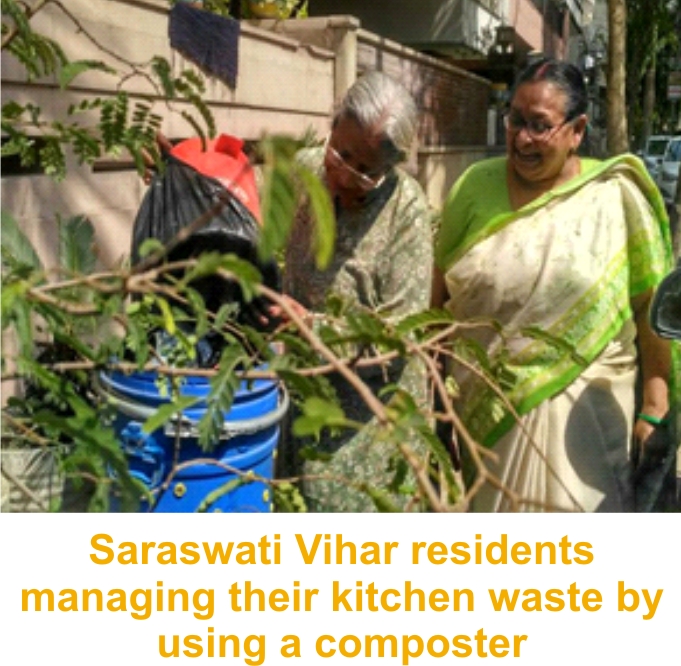Behaviour Change for Waste
Segregation
and Composting
Imagine this: A 10-metre high-landfill covering all of Mumbai! According to conservative estimates, with a projected generation of 165 million tonnes of waste by 2031, Indian cities will require 66,000 hectares of land for setting up a 10-metre high landfill for 20 years. That is, a little more than the area of Mumbai.
What can citizens do about it? Is the management
of waste, the job of the government alone? The answer to all of these
questions lies in the newly enacted law – the Solid Waste Management Rules,
2016 that is based on the role of citizens. The law has defined the proper
segregation and management of waste by households. The challenge is that
this has behavioural connotations. How does behaviour change happen?
Development Alternatives' experiment with 150 households in Saraswati Vihar locality of North Delhi brought to the fore various thought provoking ways to evoke sustainable behaviour change. The aim behind the psychology of sustainable behaviour change is to create conditions that make sustainable action the most appealing or natural choice for the people.
Household composters were given to families to compost their kitchen waste. This led to the first step – 'Make sustainability the social default.' This had the strongest influence on the behaviour of people and all members of the Resident Welfare Association (RWA). The second most influential aspect that the project focussed on was to 'Emphasise on personal relevance of composting in their daily lifestyles'.
Behaviour change does not happen overnight. We at Development Alternatives have realised that people usually move through several stages before converting a belief into an action. There are various essential stages which help an individual achieve behaviour change which were realised during the project – awareness, contemplation, preparation and action.
Focussing on an individual or an action at a time might seem like a slow route to a sustainable world. However, it is an individual change at the grassroots level that makes it possible for broader social and policy progress to occur.
-
Small changes do add up: When one small change is made by many individuals, or one individual makes many small changes, it begins to add up to a significant, positive improvement.
-
Personal changes are the gateways to public change: A push towards larger policy change is much more likely when many individuals (the grass-roots level) are in favour of the change.
-
There are many forms of action that boost mind-shift: A shift towards a more sustainable lifestyle encompasses many different types of actions. There are a number of behaviours that are not in themselves sustainable actions, but which still contribute to creating a sustainable lifestyle.
-
Making composting feel personal, urgent and local: We showed people the way to take action by doing the following:
a. Civic action (e.g volunteering, network building in the area)
b. Educational action (e.g conducting sessions in the local schools nearby and encouraging students to study more about natural composting)
c. Financial action (e.g., donating money to rag pickers and gardeners who manage society waste and produce compost in return)
d. Persuasive action (e.g., conducting advocacy with local government officials, MCD officials)
e. Direct behaviour change
-
Convincing people to buy individual composters to begin with the composting process.
-
Convincing people to buy sawdust to continue the composting process for a long-term impact.
-
Developing a habit of segregation in composting families through frequent handholding visits to their houses.
-
Developing a habit in the families to keep two separate dustbins in their kitchens for dry and wet waste.
-
Providing training to other stakeholders for eg: household maids, rag pickers and gardeners.
The pilot initiative in Saraswati Vihar has proved that the decentralised waste management model has the potential for being scaled up and can help cities manage their own waste in a more sustainable manner. Development Alternatives believes that community involvement is not an option anymore but it is a necessity. It might be a time-consuming process, but it has immense potential for a long-lasting change.
Vandana Saini
vsaini@devalt.org